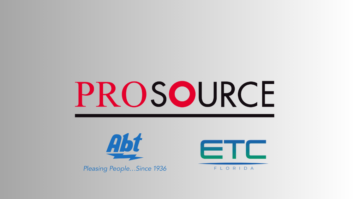Orlando, Fla. – AT&T’s
proposed acquisition of T-Mobile will enable AT&T to expand its spectrum
holdings in the 1.7/2.1GHz Advanced Wireless Services (AWS) band, reduce AT&T
network congestion in large urban areas where data usage is high, and deliver
multiple competitive advantages, analysts said here at the CTIA convention.
The competitive advantages range from
getting the best devices first to getting better pricing on handsets and
infrastructure, the analysts explained.
Spectrum and coverage, however,
were the two issues driving AT&T to make the offer, said Yankee Group
research fellow Christopher Nicoll. The Federal Communications Commission (FCC),
he said, wants to free up 500MHz of spectrum for wireless services, but the
additional spectrum isn’t yet available for carriers to use. “AT&T is
network-constrained and can’t get that spectrum from the FCC,” he said.
“This is all about 4G,” added
Yankee Group VP Eugene Signorini. “The two companies have been struggling with
network issues, but combined, they can leverage their different spectrum
bands.”
To a lesser extent, other factors
also motivated AT&T to buy T-Mobile for $39 billion, including access to
T-Mobile’s broader 4G HSPA+ handset portfolio and the potential to cut costs by
eliminating redundancies. Each carrier, for example, operates about 2,000
stores, and the acquisition will allow for a “significant rationalization” of
the carriers’ store counts, Signorini noted.
Also affected will be wireless
specialty chains that sell only T-Mobile handsets and other wireless specialty
chains that sell AT&T exclusively, analysts noted.
For its part, Verizon Wireless
representatives here at the convention declined to comment on the matter, but
analysts said Verizon might eventually decide to purchase smaller carriers such
as MetroPCS to gain economies of scale to compete better against AT&T.
Sprint, the nation’s third
largest carrier by subscriber count after AT&T and Verizon Wireless, has
opposed the purchase on anti-competitive grounds.
As part of its plan to buy
T-Mobile, AT&T said it will drop the T-Mobile brand, migrate T-Mobile
subscribers off T-Mobile’s HSPA+ 1.7/2.1GHz band, and use T-Mobile’s 1.7/2.1GHz
spectrum as well as its own unused 1.7/2.1GHz spectrum to launch 4G LTE data
service. AT&T will also use its 700MHz spectrum, as previously announced,
for 4G LTE data service.
AT&T has only 12MHz of
1.7/2.1GHz spectrum, while T-Mobile owns 27MHz of spectrum in those bands,
Yankee’s Nicoll said.
Both carriers currently use GSM, W-CDMA
HSPA, and HSPA+ technology, making a combination of the two carriers’ network
less problematic than if they used different technologies.
For the deal to get FCC and
Department of Justice approval, AT&T will likely have to divest itself of
spectrum in some geographic markets, analysts noted.
,
Deutsche
Telekom announced that it agreed to sell T-Mobile USA, the nation’s
fourth-largest carrier, to AT&T, the nation’s largest carrier. The
unexpected move followed a recently announced plan by T-Mobile to reorganize
and restructure to reverse its poor performance.
At the end of 2010, AT&T had 95.5
million subscribers and T-Mobile had 33.79 million. Verizon Wireless had 94.1
million subscribers at the end of fiscal 2010.
Deutsche
Telekom said it expects the transaction to close in the first six months of
2012.













